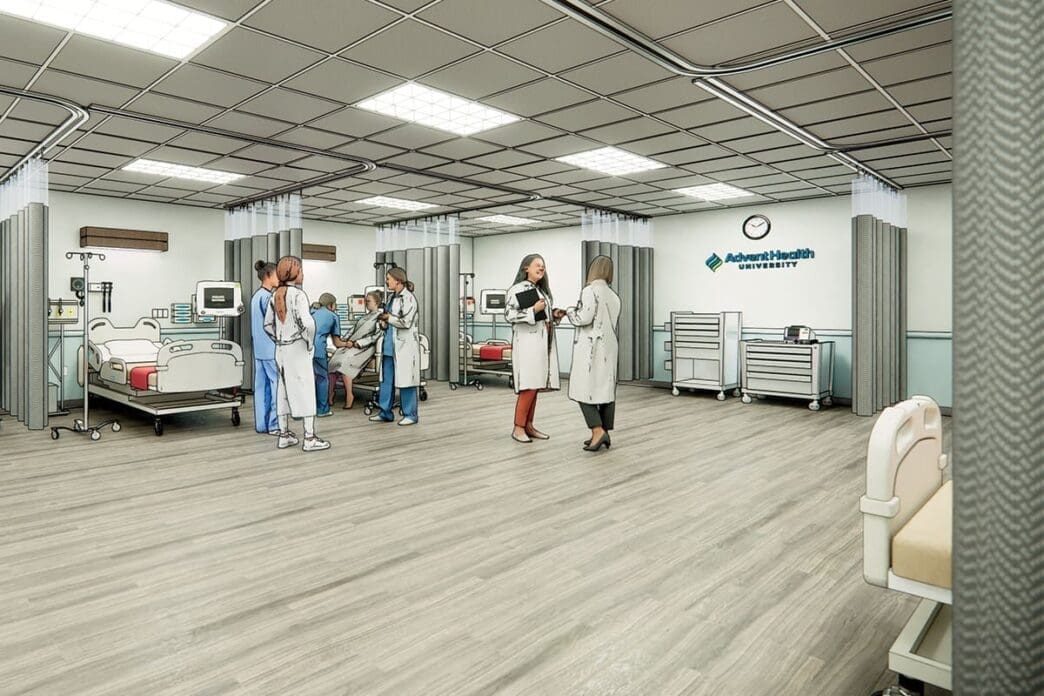Florida stands at a crossroads as it grapples with a projected shortfall of 59,000 nurses by 2035. However, proactive measures in training and recruitment offer hope in addressing this pressing issue. AdventHealth University’s new Tampa campus aims to bolster the state’s healthcare workforce.
A 2021 analysis by the Florida Hospital Association raises significant concerns about the future of healthcare in Florida, projecting a shortage of 59,000 nurses by 2035. In response, educational institutions and healthcare providers are ramping up efforts to train and recruit new nurses. AdventHealth University, for instance, is launching a new campus in Tampa, which will include a state-of-the-art simulation lab designed to enhance nursing education and improve student learning outcomes. This initiative will not only prepare aspiring nurses for roles in affiliated hospitals but also offer employment opportunities across various healthcare facilities in Florida.
The issue of hospital safety in Florida is also under scrutiny. Leapfrog, an organization committed to improving hospital safety, ranks over 3,000 acute-care hospitals in the United States to highlight safety practices. In the latest assessments, Florida hospitals achieved a ranking of 13th in the nation, with 71 out of 193 hospitals earning an ‘A’ for safety. This highlights the state’s efforts in maintaining high standards of patient care, although there remains room for improvement.
Meanwhile, technological advancements are making their mark in the healthcare sector across Florida. For example, a new robotic system at Physician’s Regional Hospital in Collier County is facilitating complex brain and spinal surgeries with unprecedented precision. Such innovations are becoming a cornerstone in modern medical practices, supporting doctors in achieving better surgical outcomes and patient recovery rates.
The healthcare landscape in Florida is further complicated by challenges faced by programs like Medicaid managed care, which serves millions of low-income residents. A recent report card by the National Committee on Quality Assurance placed these plans in the middle tier for quality of care, indicating a need for improvements in ensuring that residents receive optimal healthcare services.
Additionally, a significant number of Floridians are participating in the Affordable Care Act, with over 4.2 million residents enrolled this year—the highest nationwide. However, uncertainty about the program’s future persists, as changes loom that could impact insurance coverage for many.
In another notable development, Charu Raheja, a Jacksonville entrepreneur, has utilized a personal health crisis to create an AI-based software tool that ensures accurate communication of medical messages. This tool, MedMessage Assist, is part of TriageLogic’s suite of services, which also includes telehealth technology and remote patient monitoring. Raheja views this as a key achievement in her career as CEO and co-founder.
Elsewhere in the state, complications have arisen following natural disasters. The aftermath of recent hurricanes has led to an increase in Vibrio bacteria cases. Vibrio, which thrives in warm, brackish waters, has been more prevalent due to the hurricane-induced flooding, highlighting the environmental challenges that accompany seasonal weather patterns in Florida.
While Florida faces significant challenges with a projected shortage of nurses and other healthcare issues, initiatives in education, technology, and safety improvements offer promising solutions. Ongoing efforts to train new healthcare professionals and adopt technological innovations are crucial to maintaining and enhancing the state’s healthcare system. As the landscape evolves, these proactive approaches will be vital in ensuring high-quality care for Florida residents.
Source: FloridaTrend








